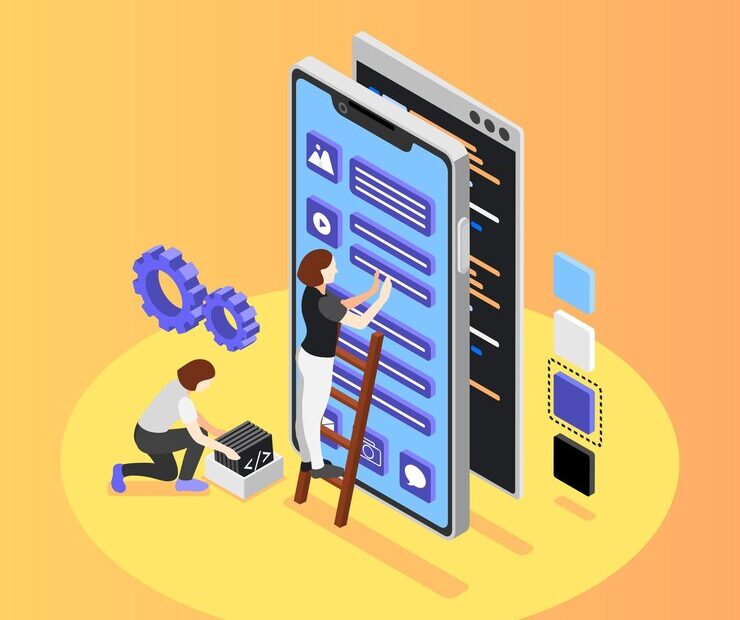In a world where over 70% of mobile devices run on Android, creating a high-quality app can be a game-changer for businesses. Whether you’re a startup founder with a brilliant idea or an established brand looking to expand into mobile, partnering with an Android app agency can turn your vision into a user-friendly, feature-rich, and scalable application.
But what exactly happens behind the scenes? Let’s break down the step-by-step journey an Android app agency takes to transform your idea into a fully functioning app from the drawing board to the Google Play Store and beyond.
1. Discovery & Strategy: Turning Your Idea into a Plan
The process starts with a discovery phase, where the agency gets to know your idea inside and out. You’ll typically have workshops or meetings with business analysts, project managers, and UX strategists to define:
Your business objectives
Target audience and user personas
Core features and app goals
Expected budget and timelines
An agency will also perform competitive analysis—examining similar apps in the market to identify what works, what doesn’t, and how your app can stand out. Tools like Google Trends, SimilarWeb, and App Annie may be used to evaluate trends and opportunities.
Example:
If you want to build a food delivery app, the agency might compare your concept with apps like Uber Eats, DoorDash, or local competitors, then propose unique selling points or innovative features (like real-time delivery tracking or smart reordering).
2. Wireframing & User Experience Design (UX)
With a plan in place, the agency creates wireframes—simple, visual blueprints that show how users will navigate the app. This helps identify:
The number of screens required
How users complete tasks (like placing an order or signing up)
Logical flow between features
Wireframes are typically shared and refined collaboratively with your input before moving to the design stage. At this stage, user testing prototypes can be created to validate usability and gather early feedback.
Tools Used: Figma, Balsamiq, Adobe XD, InVision
3. UI Design: Visual Identity and Branding
Once the structure is approved, the design team adds visual appeal with color schemes, iconography, animations, and typography. The app’s UI (User Interface) must:
Align with Google’s Material Design principles
Reflect your brand identity
Ensure accessibility (e.g., readable fonts, contrast ratios)
The agency will often prepare a clickable prototype so you can see how the final product will feel.
Deliverables:
High-fidelity screen designs
Design system (colors, components, fonts)
Prototypes for previewing user flows
4. Technical Planning & Architecture Design
Before development begins, the engineering team prepares the technical foundation:
Tech stack selection (Kotlin vs. Java, Firebase vs. AWS)
Database structure (SQL, NoSQL, or hybrid)
API architecture (RESTful or GraphQL)
Scalability and security planning
The agency will also document the system architecture and decide whether the app will be native or cross-platform (using frameworks like Flutter or React Native, if requested).
Example:
If your app handles sensitive data, such as health or finance, security features like end-to-end encryption, OAuth 2.0 authentication, and data encryption at rest are considered early on.
5. Agile Android Development
The core of the journey is the development phase. Agencies usually follow Agile methodology—breaking down the work into sprints (2–4 weeks) with regular demos and progress updates.
Key Activities:
Front-end development: Creating screens and animations using Kotlin or Java
Back-end development: Setting up databases, servers, and APIs
Feature implementation: Adding login, search, filters, payment gateways, etc.
Device compatibility: Ensuring functionality across different Android versions and screen sizes
Popular Tools:
Android Studio
Retrofit or Ktor (for network calls)
Room or Realm (for local databases)
Firebase (for authentication, push notifications, and analytics)
6. Quality Assurance (QA) and Testing
Testing is embedded throughout the development cycle. A reputable Android app agency will run multiple types of tests to catch bugs, improve performance, and ensure a smooth user experience.
Types of Testing:
Unit Testing – Ensures each function works properly
UI Testing – Simulates real user actions
Device Testing – App is tested on real devices (Pixel, Samsung, Xiaomi, etc.)
Regression Testing – Ensures new updates don’t break old features
Performance Testing – Checks speed, battery usage, and memory consumption
Automated testing tools like Espresso, JUnit, and Firebase Test Lab help scale the process.
7. Play Store Deployment & Optimization
Once the app is ready, the agency helps with publishing on Google Play, which involves:
Preparing assets (icon, screenshots, promotional video)
Writing SEO-optimized app descriptions
Complying with Google Play policies (data privacy, age ratings, etc.)
Setting up alpha/beta testing
Configuring pricing or in-app purchases
Pro Tip: A good agency also assists with App Store Optimization (ASO), ensuring your app is discoverable through relevant keywords and categories.
8. Post-Launch Support & Updates
Launching an app is just the beginning. Android devices constantly evolve, and user feedback often leads to new ideas or bug reports.
An Android app agency will:
Monitor app performance and crash reports via tools like Crashlytics
Implement analytics (Google Analytics, Firebase Analytics, Mixpanel)
Fix bugs and release hotfixes
Develop and roll out new features in future updates
Offer customer support or helpdesk integration (like Zendesk)
Some agencies offer maintenance contracts or long-term support plans to keep your app healthy and up-to-date.
What Sets a Great Android App Agency Apart?
A quality Android app agency isn’t just about coding. Here’s what makes a big difference:
Transparent communication and regular updates
Flexible engagement models (fixed cost, time-based, dedicated teams)
Expertise in launching and scaling apps
Cross-functional teams with designers, developers, QA, and PMs
Focus on KPIs like user retention, conversion rates, and crash-free sessions
Final Words
Building a successful Android app goes far beyond just hiring developers. It’s a journey of strategic planning, thoughtful design, reliable development, and continuous improvement. An experienced Android app agency acts as a full-service partner, guiding you from idea to launch—and supporting you long after your app hits the market.
So whether you’re launching the next big thing in e-commerce, health tech, or social networking, teaming up with the right Android app agency can make all the difference.
